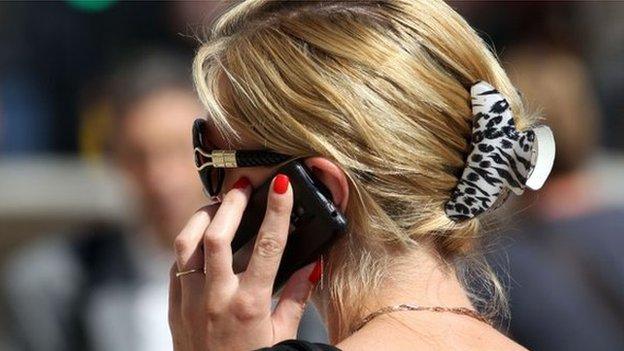Air checks: What do passengers think?
- Published
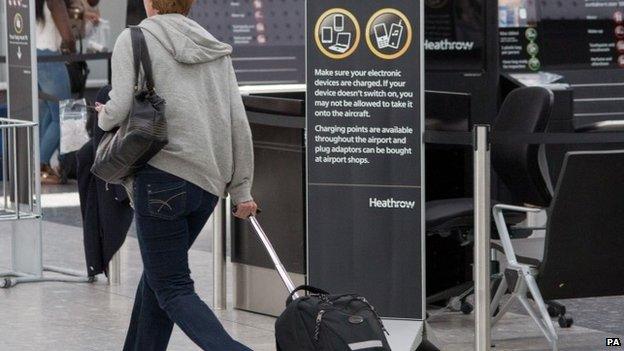
Security checks on electronic and electrical devices are being ramped up at UK airports, in response to what the US calls a "credible threat" of terrorism. So what do passengers think of the changes?
"I would rather turn on my phone… than be blown up in the sky," says Matt Bowdidge, who is flying home to Brisbane, Australia. He has his gadgets and wires strewn across a cafe table - checking them before he heads to security.
Air passengers travelling into and out of the UK have been warned that if their devices cannot be switched on, they may be forced to leave them behind.
"I don't want to have to surrender my stuff, so I want to make sure it's all fully charged," Mr Bowdidge explains.
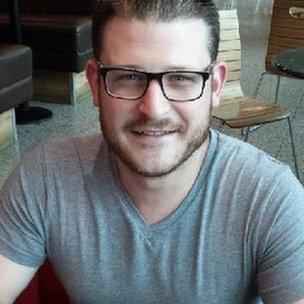
Matt Bowdidge: Important we trust in air safety
But even though passengers face a fresh set of demands and added scrutiny at security, it is business as usual at Heathrow.
Crowds stream through departures, bound for flights all over the world. And while some seem puzzled by calls to ensure their electronic devices are powered up, most are unfazed.
Only a handful of passengers at this Terminal 3 cafe occupy the wall socket charging points, giving their laptops, phones and tablets one last boost of power.
Twenty-nine-year-old Mr Bowdidge is a frequent flyer, well-accustomed to the rules and regulations of air travel.
"As long as people have been given enough time to plan for their trip with these new measures, then I'm happy enough with them," he says.
"I would rather have the security than die or go missing in a plane."
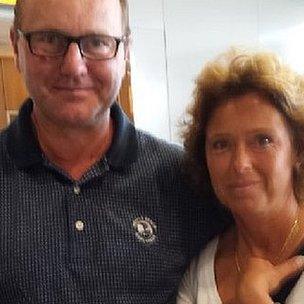
Vladimir and Edita Durovcik: Governments don't want to disrupt passengers
And it seems this is the general consensus.
As Vladimir Durovcik puts it: "We're are all one civilisation and we do what we can, no matter how small, to make sure we are all safe."
'Is it necessary?'
He and his wife Edita, from Slovakia, are travelling to Vienna and have arrived at the airport two hours ahead of their flight.
"I'm not able to judge whether all this is necessary," he says. "But I know the threat is general - regardless of whether we're in the US or the UK.
"I don't think the governments are in the business of disrupting passengers' travel plans for no reason."
Nic Malcolmson and Rachel Brady, who are flying to Los Angeles for work, agree.
But they have one gripe: Passengers should be better informed.
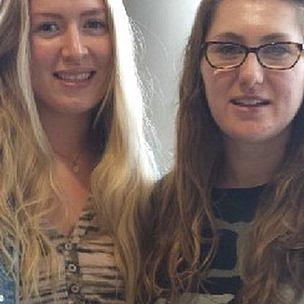
Rachel Brady and Nic Malcolmson: The public should be better informed
Ms Brady believes all airlines should contact people before they fly to inform them of the new measures.
"I heard about this on the news and it's lucky I did," Ms Malcolmson adds.
"I think that, generally, the threat hasn't been explained. I know they can't tell the public too much for security reasons, but maybe people would be more accepting of these measures if they were told at least something."
She also thinks there should be more charging points throughout airports because "sometimes they are really hard to come by".
Emily Healy agrees there is confusion about the new rules.
The new graduate, who is travelling to Malaysia on holiday, says it was her parents who told her to charge her phone and camera.
"I'm not entirely sure what charging the electronic devices is all about. I expect it's to make sure people haven't hidden bombs in batteries and things like that," she says.
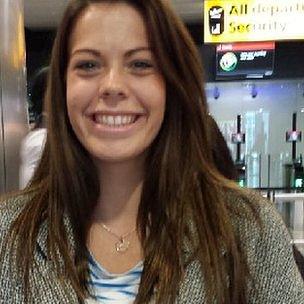
Emily Healy: I don't want to hear "the B word"
'Nothing major'
Clutching a clear plastic bag with her carry-on liquids, Ms Healy admits the tight security measures in general can be a headache.
"I'm mainly sad because I had to get rid of my face cream because it was too big for me to carry on," she laughs.
According to Karen Mascarinas, this new focus on electronics is "nothing major" - particularly for younger people who are used to today's ever-evolving air security measures.
"I always make sure my things are fully charged anyway," she says as she prepares to catch a flight to Los Angeles, bound for San Diego after a year of studying in the UK.
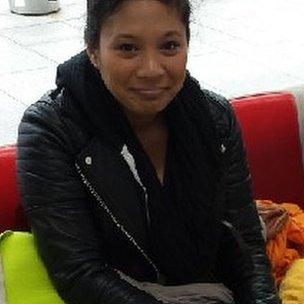
Karen Mascarinas: I always charge my electronics
"I hate running out of battery during a flight so I make sure I'm well prepared when I'm flying."
Ms Mascarinas shrugs her shoulders as she repacks her suitcases, one of which, she is told, is too heavy.
The different security measures passengers are subjected to may have their ups and downs, she says, but being safe is everything.
Her sentiments echo those of self-proclaimed "travel pro" Mr Bowdidge, who insists "100% trust" when flying is paramount.
And asked if the threat of a terror attack would ever put him off flying, he says: "You could choke on a sausage tomorrow.
"You can't just stop living your life - otherwise, they win."
- Published9 July 2014
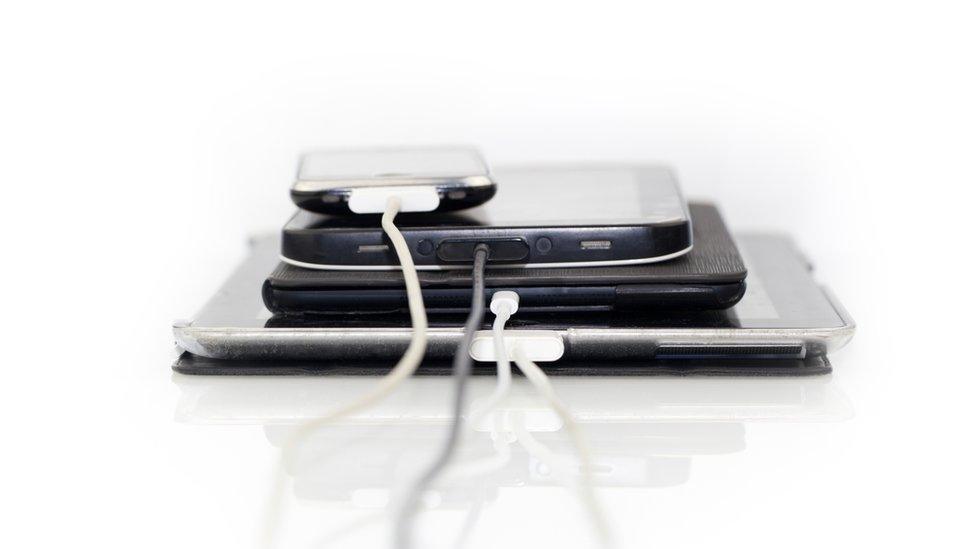
- Published9 July 2014
